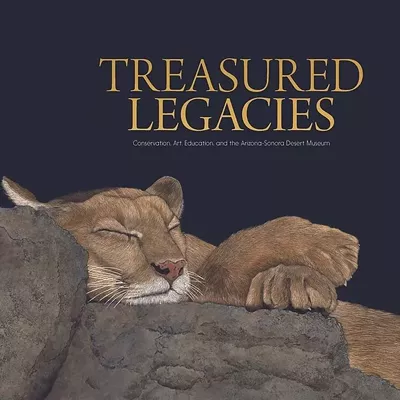ALMOST NOTHING EVER happens in a poem by Charles Wright. Written from the space "between the adjective and the noun," his meditative lyrics hover with an obsessive desire to push through the obstinate veil of reality in an attempt to see what cannot be seen. Convinced, as he once wrote, that "nothing's more abstract, more unreal / than what we actually see," Wright has produced a collection of poetry, Negative Blue, that continues his life-long dialogue with the everything and nothing of language, landscape and metaphysical identity.
This collection of 117 poems brings together Wright's previous three books--Chicamauga, the Pulitzer Prize-winning Black Zodiac, and Appalachia--as well as seven previously uncollected poems in a section titled North American Bear. Wright, with exquisite power, persists in his self-exhaustive search for a poetry of transcendence and transformation.
As with Wright's 12 preceding volumes of poetry, one strength of Negative Blue lies in the eclecticism of its influences and allusions. Southern idiom and landscape, Italian art and culture, Asian precision and philosophy, and surrealist chromatics all compress within Wright's anti-closure, open-field lines. At their best his poems are jaggedly elegant, rhythmically flexive and alliterative, while all the time highly imagistic and visually acute. The result is a dynamism of both auditory and thematic textures over the course of a single poem.
In one beautiful moment in the poem "In the Valley of the Magra," Wright's lines are simultaneously rife with the foreign and the familiar:
In June, above Pontremoli, high in Lunigiana,
The pollen-colored chestnut
blooms sweep like a long cloth
Snapped open over the bunched treetops
And up the mountain as far as the almost-Alpine meadows
At dusk, in the half-light, they appear
Like stars come through the roots of the great trees from another
sky.
Or tears, with my glasses off.
The distance of an Italian landscape, the familiarity of natural detail and the sincerity of the poet's emotion conjoin to form a small cosmology. It is a process endemic to Wright's poetry as he combines the vision of Hart Crane, the particularity of William Carlos Williams and the passion of Rainer Maria Rilke. While remaining very much rooted in the physical world of the quotidian, his poems are nevertheless resolute in their spiritual flight and metaphysical contemplation. Later, in the same poem:
... God's solitude or God's shadow,
The loose consistency of mortar and river stone
Under my fingers where I leaned out
Over it all,
isolate farm lights
Starting to take the color on ...
At once, here and throughout Negative Blue, Wright's compressed, epigrammatic voice tirelessly shifts to express hesitation, ambivalence, contradiction, doubt, but always the sonorous desire to believe in a world beyond this one.
In "The Writing Life" he pleads, "Give me the names for things, just give me their real names, / Not what we call them, but what / They call themselves when no one's listening." Such is Wright's struggle--to explore our relation to words and language or, as David St. John has so eloquently described it, "to discover the proper word construct, the right syllable mobile, the most pleasing sound ladder ... to reflect and convey his anxious, metaphysical explorations." Thus we see Wright shuttle between the meditation that opens the poem to lines desperately rooted in imagery:
At midnight, the moon-plated hemlocks like unstruck bells,
God wandering aimlessly elsewhere.
Their names, their secret names.
December. Everything's black and brown. Or half-black and half-brown.
What's still alive puts its arms around me,
amen from the evergreens
That want my heart on their ribbed sleeves.
Why can't I listen to them?
Here we see the typical pattern of the poems in Negative Blue, that is, the movement between the frustrations of metaphysical nomenclature and the calming utility of the enacted word. Wright's trust in the vitality of the image overcomes his distrust of the words he is using. Indeed, the act of searching for the "names" behind objects becomes the poem itself.
Thirty years ago Charles Wright began an ambitious project--to compose, as James Longenbach of the Boston Review has described it, a "trilogy of trilogies." The first of these triptychs was collected in Country Music, the second in The World of Ten Thousand Things. In fulfilling the visionary project of this final trilogy, Wright in Negative Blue continues to situate objects under the aspects of eternity--"As leaves fall from the trees, the body falls from the soul"--but now also sees in them his own mortality. Perhaps one of Wright's finest poems to date, "Landscape as Metaphor, Landscape as Fate and a Happy Life" conveys a mythical awareness of our shared human frailty:
Up here, our lives continue to lift off like spores in the noon-wash,
Spruce trees and young hemlocks stand guard like Egyptian dogs
At the mouth of the meadow,
Butterflies flock like angels,
and God knees our necks to the ground.
Here the agony of the final devastates; it hurls us from the heights of "noon-wash" down to the world of a brutal, paralyzing God. Still, Wright remains persistent in his search for answers. Immediately following such bleakness, we find some of the most unforgettable lines of his career: "Nevertheless, the stars at midnight blow in the wind like high cotton. / There is no place in the world they don't approach and pass over." Wright may refuse to believe in anything completely, but as the pure lyricism of these lines demonstrates, his love of language compels him to continue his search.
In the poem "Freezing Rain," his lines glisten: "Cold snare taps on the skylight, / ice like a new conk on the trees, / Winter's slick-back and stiff gel." And again in the poem "Apologia Pro Vita Sua," the abstract is at once made sensual, palpable, even painful: "June is a migraine above the eyes, / Strict auras and yellow blots, / green screen and tunnel vision, / Slow ripples of otherworldliness, / Humidity's painfall drop by drop." No one without a faith in the written word could compose with such brilliance.
Where Wright situated himself in more hermeneutic terms in his previous two trilogies--childhood in Country Music and middle age in The World of Ten Thousand Things, he now ponders the shape and sound of a more mystical future to come. In the final section of the book, the seven poems that make up North American Bear, Wright, at 62, struggles to find the final solitude he has yet to arrive at:
I walk in the chill of late autumn night
like Orpheus,
Thinking my song, anxious to look back,
My vanished life an ornament, a drifting cloud, behind me,
A soft, ashen transcendence
Buried and resurrected once, then time and again.
Mastery of an art form, as Pound said, is the work of a lifetime. For Charles Wright, art is life-time. And whether or not in the future Wright finds the "order beyond form" that has eluded him for the past 30 years, readers can be sure that the attempt will go on and the poetry will be beautiful, challenging and always valuable.






